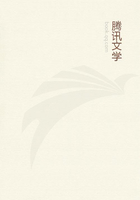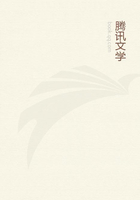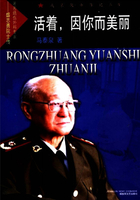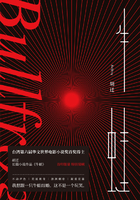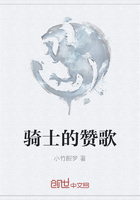He signed this laconic order, which I instantly despatched to General Ferino. I acquainted my cousin with what had passed, and remained at ease as to the result of the affair.
Scarcely had I entered the chamber of the First Consul the next morning when he said to me, "Well, Bourrienne, you say nothing about your M.
Defeu. Are you satisfied?"--"General, I cannot find terms to express my gratitude."--"Ah, bah! But I do not like to do things by halves. Write to Ferino that I wish M. Defeu to be instantly set at liberty. Perhaps I am serving one who will prove ungrateful. Well, so much the worse for him. As to these matters, Bourrienne, always ask them from me. When I refuse, it is because I cannot help it."
I despatched at my own expense an extraordinary courier, who arrived in time to save M. Defeu's life. His mother, whose only son he was, and M.
Blanchet, his uncle, came purposely from Sens to Paris to express their gratitude to me. I saw tears of joy fall from the eyes of a mother who had appeared to be destined to shed bitter drops, and I said to her as I felt, "that I was amply recompensed by the success which had attended my efforts."
Emboldened by this success, and by the benevolent language of the First Consul, I ventured to request the pardon of M. de Frotte, who was strongly recommended to me by most honourable persons. Comte Louis de Frotte had at first opposed all negotiation for the pacification of La Vendee. At length, by a series of unfortunate combats, he was, towards the end of January, reduced to the necessity of making himself the advances which he had rejected when made by others. At this period he addressed a letter to General Guidal, in which he offered pacificatory proposals. A protection to enable him to repair to Alencon was transmitted to him. Unfortunately for M. de Frotte, he did not confine himself to writing to General Guidal, for whilst the safe-conduct which he had asked was on the way to him, he wrote to his lieutenants, advising them not to submit or consent to be disarmed. This letter was intercepted. It gave all the appearance of a fraudulent stratagem to his proposal to treat for peace. Besides, this opinion appeared to be confirmed by a manifesto of M. de Frotte, anterior, it is true, to the offers of pacification, but in which he announced to all his partisans the approaching end of Bonaparte's "criminal enterprise."
I had more trouble than in M: Defeu's case to induce the First Consul to exercise his clemency. However, I pressed him so much, I laboured so hard to convince him of the happy effect of such indulgence, that at length I obtained an order to suspend the judgment. What a lesson I then experienced of the evil which may result from the loss of time! Not supposing that matters were so far advanced as they were, I did not immediately send off the courier with the order for the suspension of the judgment. Besides, the Minister-of-Police had marked his victim, and he never lost time when evil was to be done. Having, therefore, I know not for what motive, resolved on the destruction of M. de Frotte, he sent an order to hasten his trial.
Comte Louis de Frotte was brought to trial on the 28th Pluviose, condemned the same day, and executed the next morning, the day before we entered the Tuileries. The cruel precipitation of the Minister rendered the result of my solicitations abortive. I had reason to think that after the day on which the First Consul granted me the order for delay he had received some new accusation against M. de Frotte, for when he heard of his death he appeared to me very indifferent about the tardy arrival of the order for suspending judgment. He merely said to me, with unusual insensibility, "You should take your measures better. You see it is not my fault."
Though Bonaparte put no faith in the virtue of men, he had confidence in their honour. I had proof of this in a matter which deserves to be recorded in history. When, during the first period of our abode at the Tuileries, he had summoned the principal chiefs of, La Vendee to endeavour to bring about the pacification of that unhappy country; he received Georges Cadoudal in a private audience. The disposition in which I beheld him the evening before the day appointed for this audience inspired me with the most flattering hopes. Rapp introduced Georges into the grand salon looking into the garden. Rapp left him alone with the First Consul, but on returning to the cabinet where I was he did not close either of the two doors of the state bedchamber which separated the cabinet from the salon. We saw the First Consul and Georges walk from the window to the bottom of the salon--then return--then go back again.
This lasted for a long time. The conversation appeared very animated, and we heard several things, but without any connection. There was occasionally a good deal of ill-humour displayed in their tone and gestures. The interview ended in nothing. The First Consul, perceiving that Georges entertained some apprehensions for his personal safety, gave him assurances of security in the most noble manner, saying, "You take a wrong view of things, and are wrong in not coming to some understanding; but if you persist in wishing to return to your country you shall depart as freely as you came to Paris." When Bonaparte returned to his cabinet he said to Rapp, "Tell me, Rapp, why you left these doors open, and stopped with Bourrienne?" Rapp replied, "If you had closed the doors I would have opened them again. Do you think I would have left you alone with a man like that? There would have been danger in it."--"No, Rapp," said Bonaparte, "you cannot think so." When we were alone the First Consul appeared pleased with Rapp's attachment, but very vexed at Georges' refusal. He said, "He does not take a correct view of things; but the extravagance of his principles has its source in noble sentiments, which must give him great influence over his countrymen.
It is necessary, however, to bring this business soon to an end."

